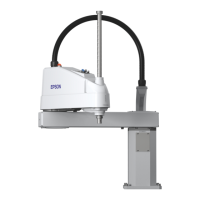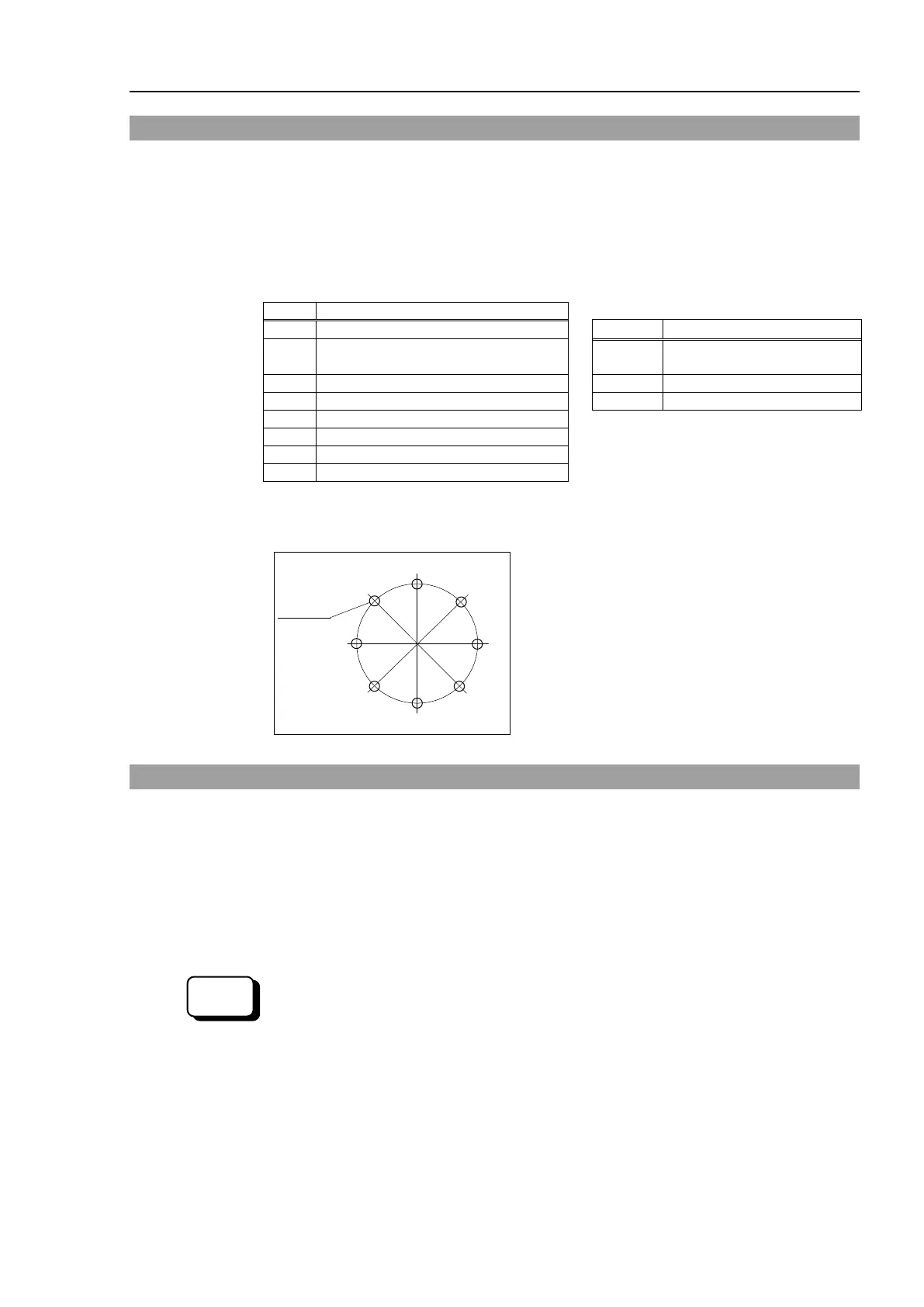Maintenance 2. General Maintenance
LS20-B Rev.4 67
2.4 Tightening Hexagon Socket Head Cap Bolts
Hexagon socket head cap bolts are used in places where mechanical strength is required.
(A hexagon socket head cap bolt will be called a “bolt” in this manual.) These bolts are
fastened with the tightening torques shown in the following table.
When it is necessary to refasten these bolts in some procedures in this manual (except special
cases as noted), use a torque wrench so that the bolts are fastened with the appropriate
tightening torques as shown below.
Refer below for the set screw.
M3
2.0 ± 0.1 N⋅m
± 1 kgf⋅cm)
M3
0.7 ± 0.1 N⋅m
The bolts aligned on a circumference should be fastened in a crisscross pattern as shown in
the figure below.
Do not fasten all bolts securely at one time. Divide
the number of times that the bolts are fastened into
two or three and fasten the bolts securely with a
hexagonal wrench. Then, use a torque wrench so
that the bolts are fastened with tightening torques
shown in the table above.
2.5 Matching Origins
After parts have been replaced (motors, reduction gear units, a brake, timing belts, a ball
screw spline unit, etc.), the Manipulator cannot operate properly because a mismatch exists
between the origin stored in each motor and its corresponding origin stored in the Controller.
After replacing the parts, it is necessary to match these origins.
For calibration, the pulse values for a specific position must be recorded in advance.
Before replacing parts, select easy point (pose) data from the registered point data to check
the accuracy. Then, follow the steps below to display the pulse values and record them.
command from the [Command Window].
>PULSE
PULSE: [Joint #1 Pulse value] pls [Joint #2 Pulse value] pls
pls [Joint #4 Pulse value] pls

